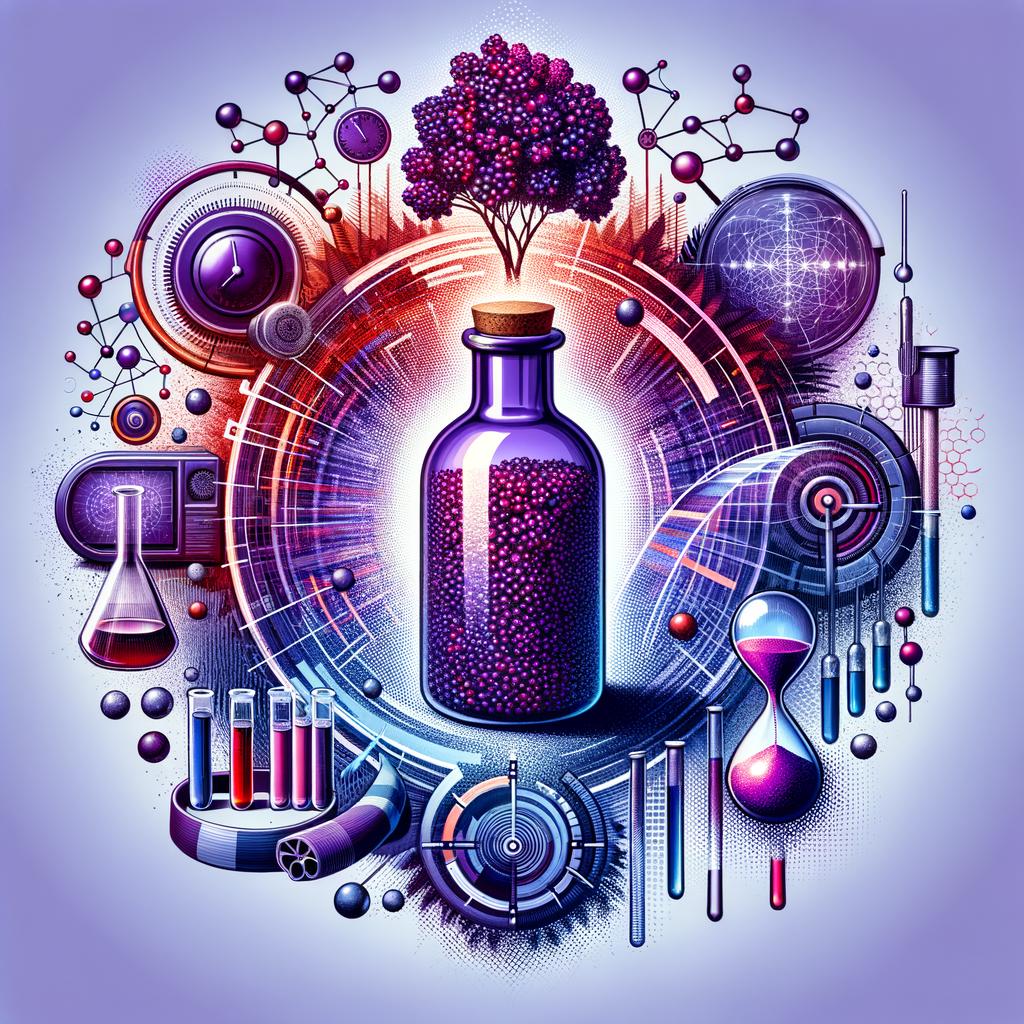
Does liquid elderberry go bad?
It’s a good idea to always have a bottle on hand throughout the year to help with immunity, allergies, colds, and flu. Like any other fruit juice it will start to ferment if left out for too long. Elderberry syrup, when stored in a glass jar in the fridge, will stay good for 3 months.
Introduction
Are you wondering how long your elderberry tincture will last? In general, when stored correctly, elderberry tincture can last for up to 5 years. The restorative power of these ruby droplets remains potent for an impressive period of time, owing to the powerful properties of the elderberries themselves. To delve deeper into the durability of elderberry tincture, we’ll be exploring the factors that affect its shelf life, from its making process to the ideal storage conditions. Let’s set off on a voyage of discovery, exploring the exciting, enduring ebb and flow of elderberry tincture’s shelf life.
Making the Magic Last: Production Process
The lifespan of your elderberry tincture is heavily influenced by the production process. To extend its longevity, ensure you are brewing in a sterile environment with fresh, top-notch ingredients. Using ripe elderberries is the key. They’re the jewel in the crown of your concoction - they dictate whether your tincture takes a turn for the tragic or triumphs in the test of time. Also, high-quality alcohol used as a preservative adds an extra layer of assurance for a prolonged lifespan.
The Tears of Time: Alcohol Percentage
Remember, the higher the alcohol content, the longer the tincture will keep. A powerful protector, alcohol wards off microbial invaders that might cause decomposition. It’s a formidable fortress for your elderberry essence, securing your tincture against the tick-tocking test of time.
Storage Strategies: Making Room for Aging
An equally important factor in extending your elderberry tincture’s longevity is its storage conditions. A cool, dark place, away from sunlight and fluctuating temperatures, is ideal. Think of your storage space as a secret sanctuary, safe from the harsh parameters of the outside world, where your tincture can age with grace and dignity.
An Ode to Oxygen: Proper Sealing
However, do remember the role of oxygen as the silent saboteur for your tincture. Sealing your tincture meticulously is non-negotiable. The air becomes an archenemy when allowed to mix with your concoction, hastening the oxidation process and decreasing your tincture’s shelf life. Store your tincture in an airtight container, nipping any oxidation opportunities in the bud.
A Taste for Time: Monitoring Your Tincture
It’s always sensible to keep an eye on your tincture. Don’t take its shelf life for granted. Sure, it can last up to five years, but monitoring for changes in smell, color, or taste can help you determine its exact lifespan. This is not a task we can delegate to time. It demands our diligent vigilance to ensure our elderberry tincture retains all its regal richness.
A Sip of Suspicion: Testing the Tincture
If you are even slightly suspicious about the potency of your tincture, there’s no harm in conducting a test run. With age, the taste might shift slightly drier, but any drastic changes in flavor are a clear cue to discontinue use.
Conclusion
So, when asked how long does elderberry tincture last, you can confidently say up to five years if taken care of with due diligence. The longevity of your labor-intensive creation mainly depends on the quality and freshness of the ingredients, careful preparation, judicious storage, and meticulous monitoring. With all these factors under keen consideration, your elderberry tincture is bound to stay in its prime for years to come.
Frequently Asked Questions
1. How should I store my elderberry tincture to prolong its life?
Store your elderberry tincture in a cool, dark place away from direct sunlight. It’s best to use an airtight container to prevent oxidation.
2. What signs should I look for if my tincture goes bad?
Look for any changes in smell, color, or taste. If it loses its typical aroma or acquires an unusual taste, it may be time to throw it away.
3. What’s the role of alcohol in preserving elderberry tincture?
Alcohol acts as a preservative for your elderberry tincture and helps prevent the growth of microorganisms that can cause decomposition.
4. Can I test the potency of my elderberry tincture at home?
Yes, you can taste it to check its potency. It might taste slightly drier with age, but a significant change in flavor is a sign your tincture may have spoiled.
5. Do the ingredients used in the production affect the shelf life of the tincture?
Absolutely. Using fresh, ripe elderberries and high-quality alcohol extends the shelf life of your tincture. Always aim for the best ingredients when brewing your tincture.


